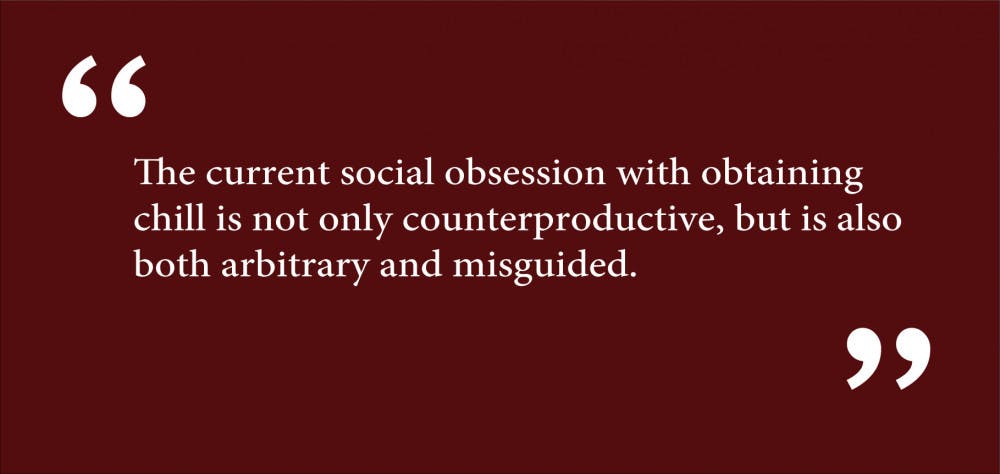What creature tends to seek a mate in the winter, welcomes any offering of free carbs and has mastered appearing calm on the surface while actually struggling to keep up? If you guessed a duck, you are correct. If you guessed a Brown student, you are also correct.
According to the logic of the “Duck Syndrome,” which was coined at Stanford but exists in a number of colleges, many of us students take pride in appearing to smoothly glide on the surface. Not studying for a test or sleeping through class, for example, are too often seen as badges of honor. But like ducks, we are actually propelled through our weeks on College Hill by a frenzied paddling underneath the water.
I don’t expect this to be true for everyone — some people are naturally calm, cool and collected. As a fairly uptight person myself, I always try to surround myself with these types of individuals. For those of us who relate to that furious paddling in some form (whether we choose to conceal it below the surface or not), we are probably also aware of what, besides the water, we are really clashing against: a culture of chill.
Unfortunately, anyone who writes an article about chill has none to speak of. But here’s the thing: Chill as a desirable trait is bogus. In fact, the current social obsession with obtaining chill is not only counterproductive, but also both arbitrary and misguided.
This manifestation of “Duck Syndrome” is not limited to academics — it is pervasive in almost all aspects of student life. In a 2015 article outlining the emergence of this obsession with chill, writer Alana Massey comments on the pervasiveness of the social phenomenon in perhaps its most prevalent realm: our romantic lives. Massey points out that we find ourselves competing in the “Blasé Olympics,” where more points are awarded to appearing disinterested than to any display of genuine emotion. As a consistent perpetrator of both the “Double Text” and the “Over Analysis,” I can attest to the moments of internal conflict where pursuing the cooler approach feels more socially acceptable than going with my natural instinct and responding immediately with excessive emojis.
Yet whenever I participate in this ritual, I invariably find myself in the pits of frustration. Why am I trying so hard to dismiss my naturally eager nature to promote a false appearance of “I literally don’t care?” In fact, pursuing this supposedly calming thing is actually the source of many freakouts. In contrast to what one may expect, the time and energy spent pursuing chill often has the reverse effect.
The premium we place on being chill is also artificial, and its only real impact is to call out people who aren’t. Chill should be used to describe the personalities of the calmer individuals among us and nothing else. Because rather than being some objective to reach, it is merely a neutral personality trait that we’ve placed on a pedestal. Unlike being kind, considerate or friendly, being chill does not provide any inherent social benefit. Like owning a pet or being tall, possessing the chill factor is arbitrary. Indeed, the fact that being chill has morphed into a social necessity only excludes others, particularly those who are naturally less chill.
So here’s my suggestion: Let’s stop placing value in always appearing aloof. Those who are suffering from the burden of chill culture must constantly check their actions to conform to this culture. While maintaining a facade of coolness can seem fulfilling, the energy it takes to achieve this chill leads to regret and frustration.
In reality, ducks have no chill. Their webbed feet don’t hold any nerves. This results in an inability to feel how cold the water actually is. Yet we students feel the stress of studying or the hazards of hook-up culture. But we can and should remove the burden of trying to act chill. Rather than stressing out over pretending to be someone we’re not, we should recognize that the deference we give to being chill is artificial and inappropriate. Instead, let’s recognize that chill is a neutral personality trait.
Rebecca Okin ’19 can be reached at rebecca_okin@brown.edu. Please send responses to this opinion to letters@browndailyherald.com and other op-eds to opinions@browndailyherald.com.





